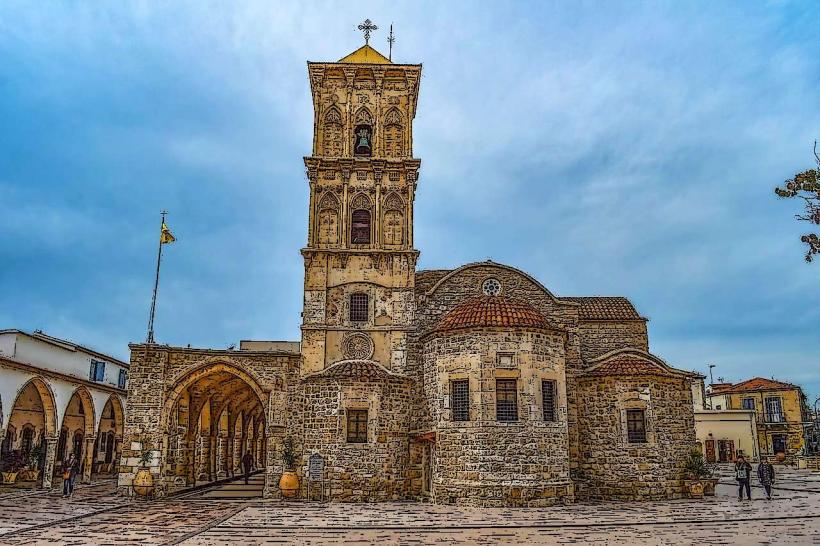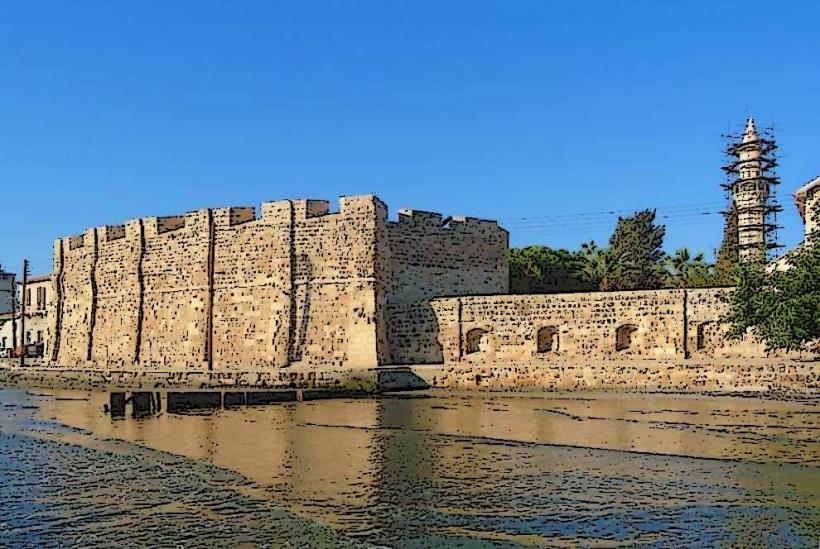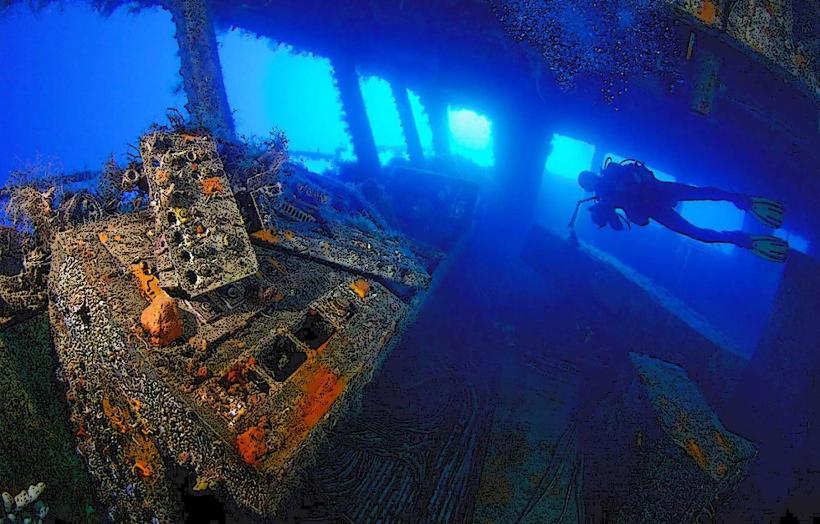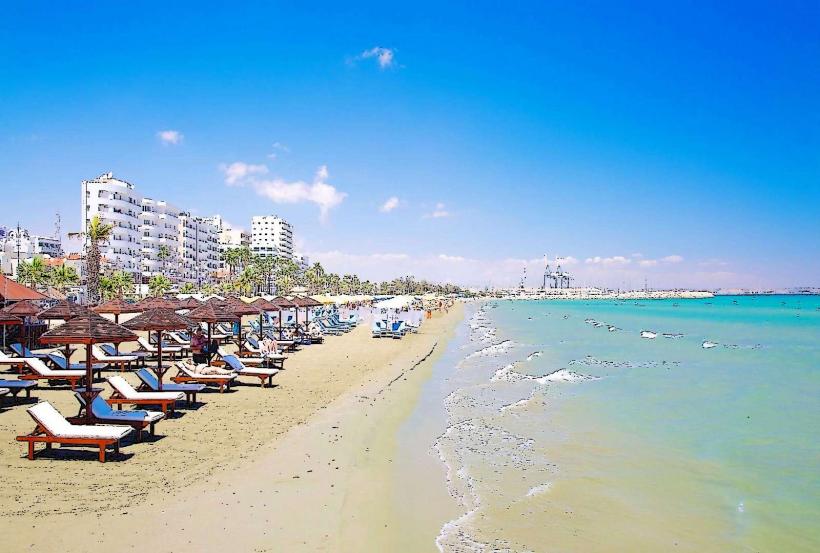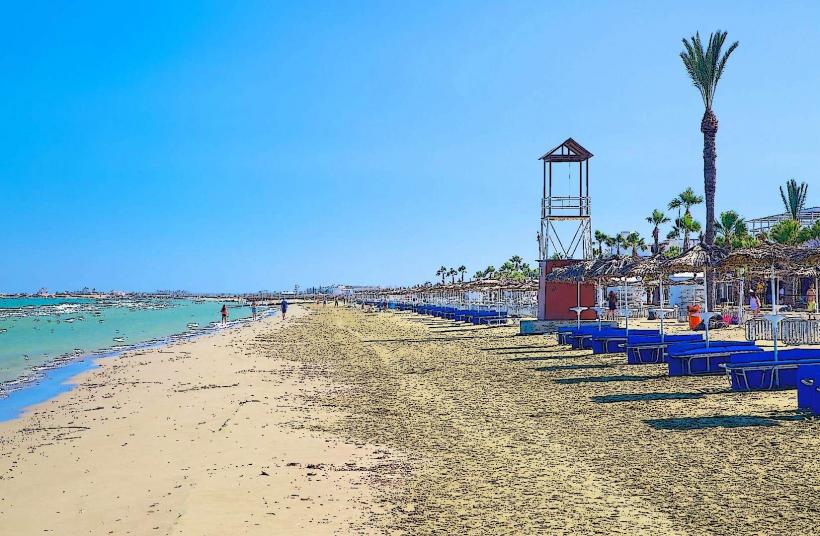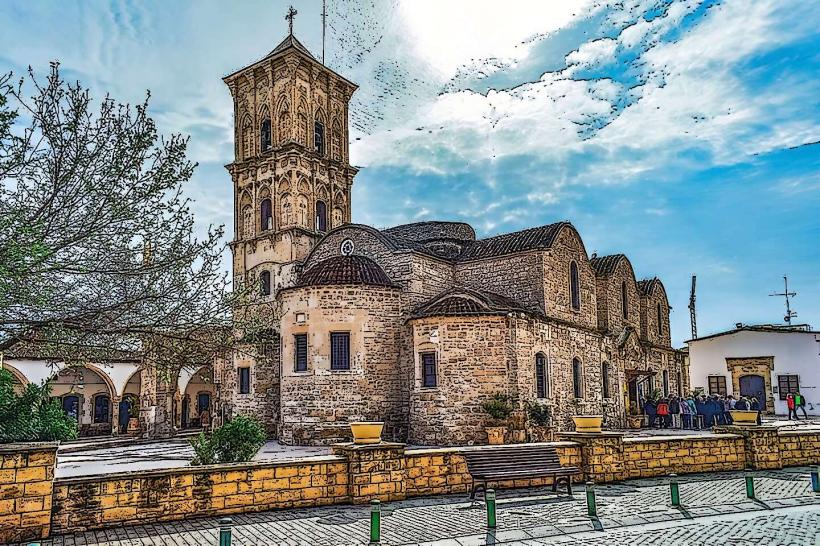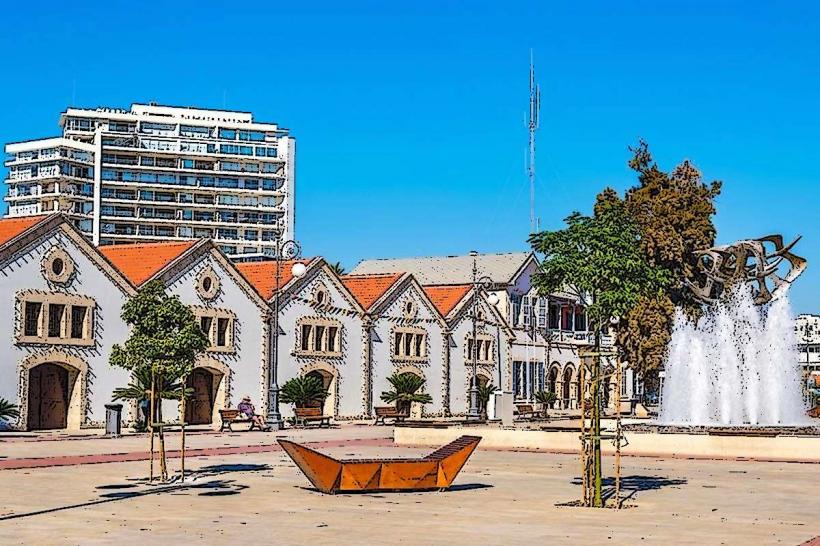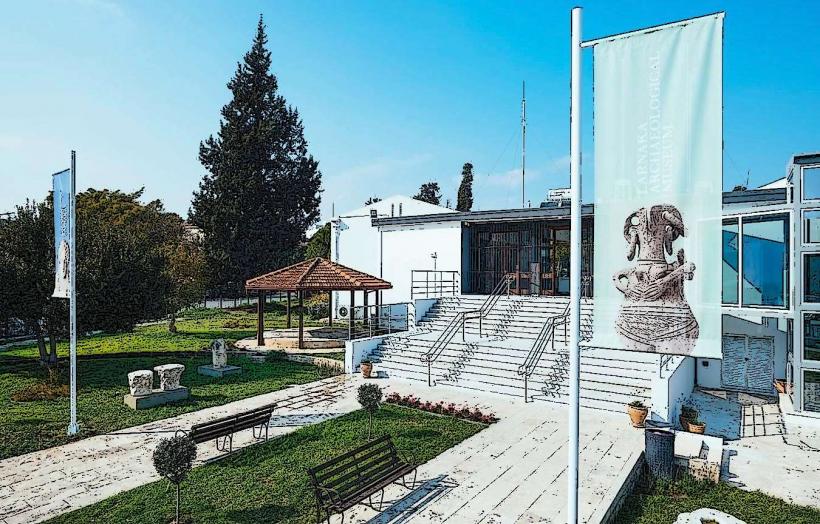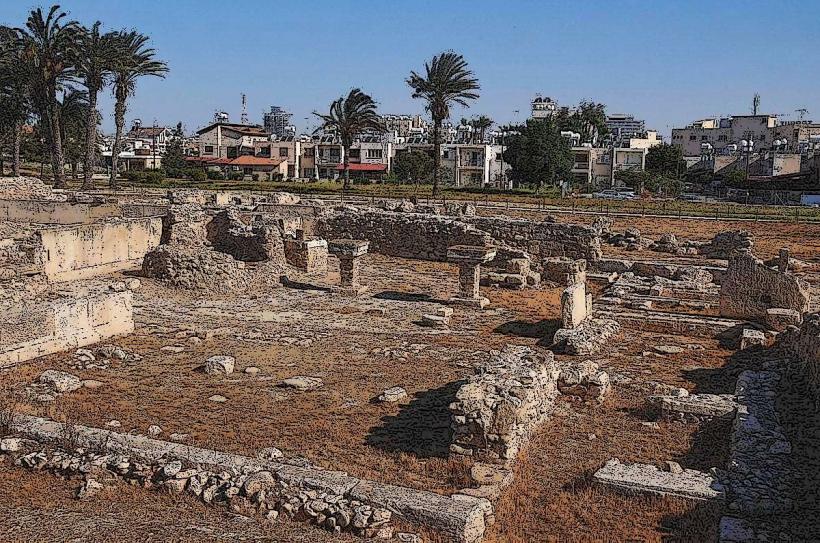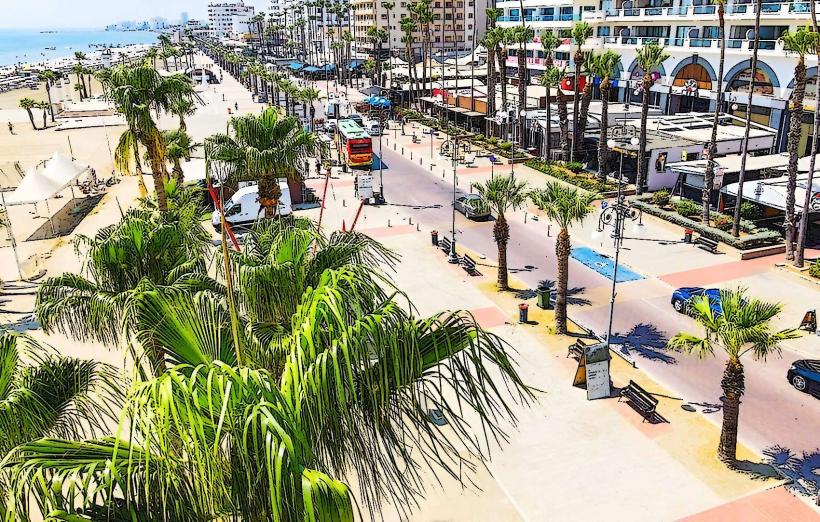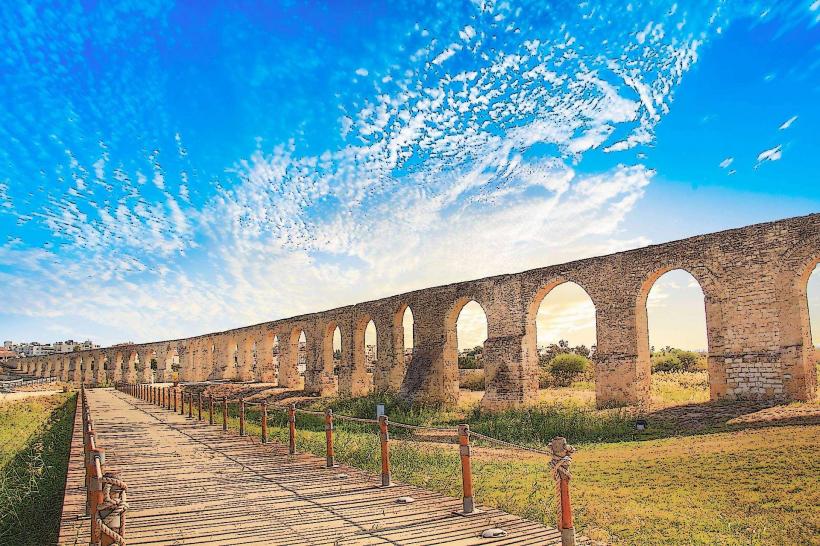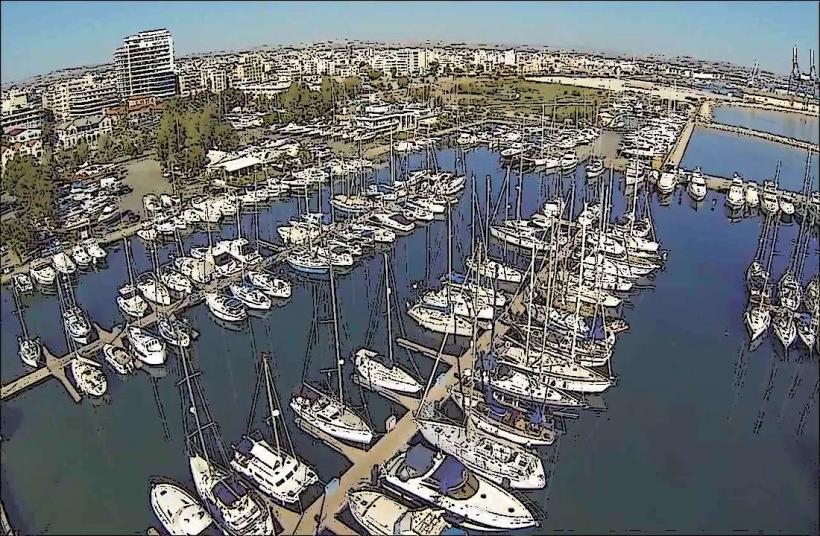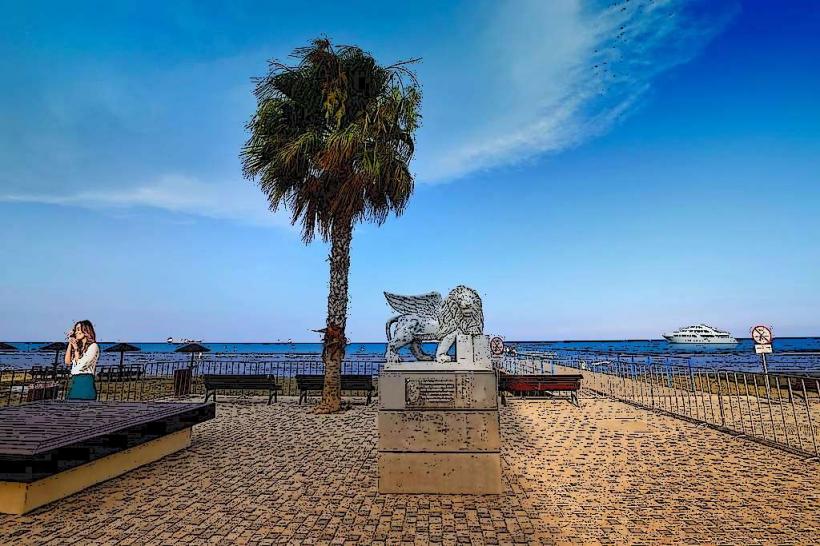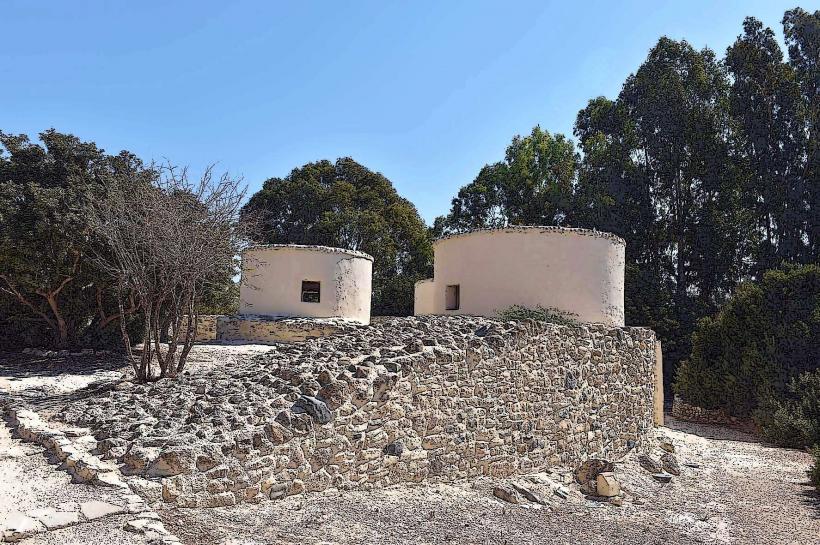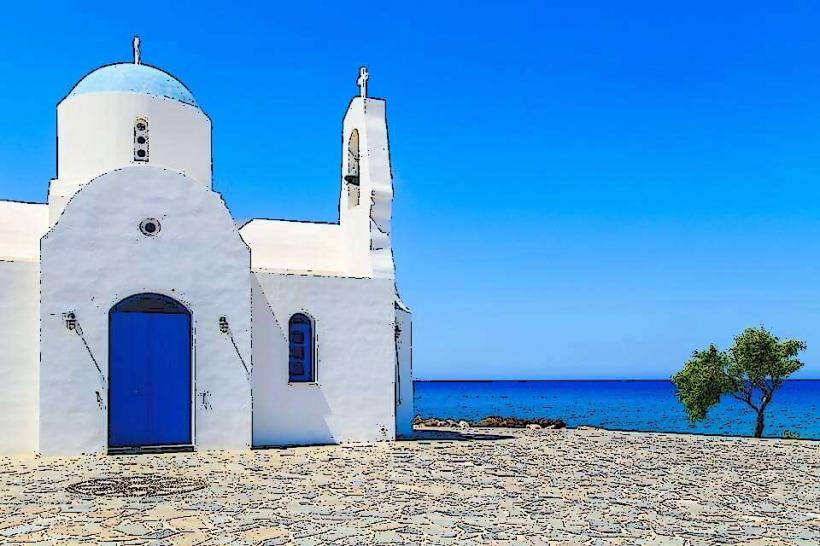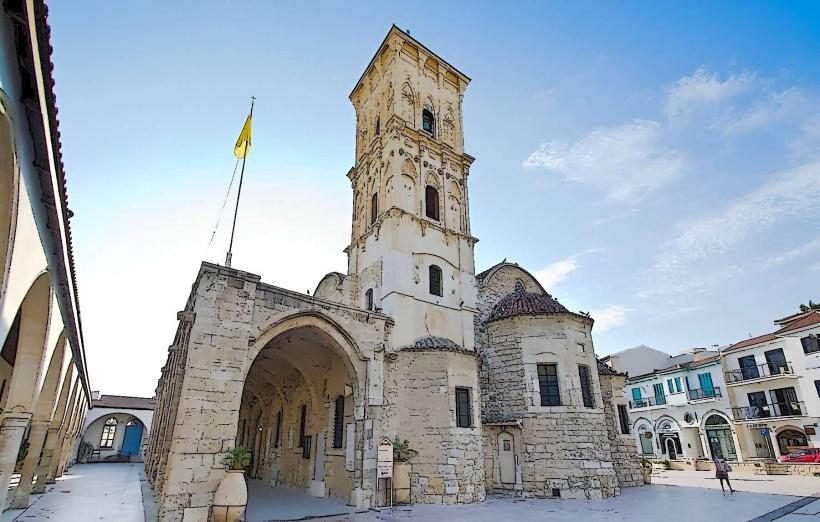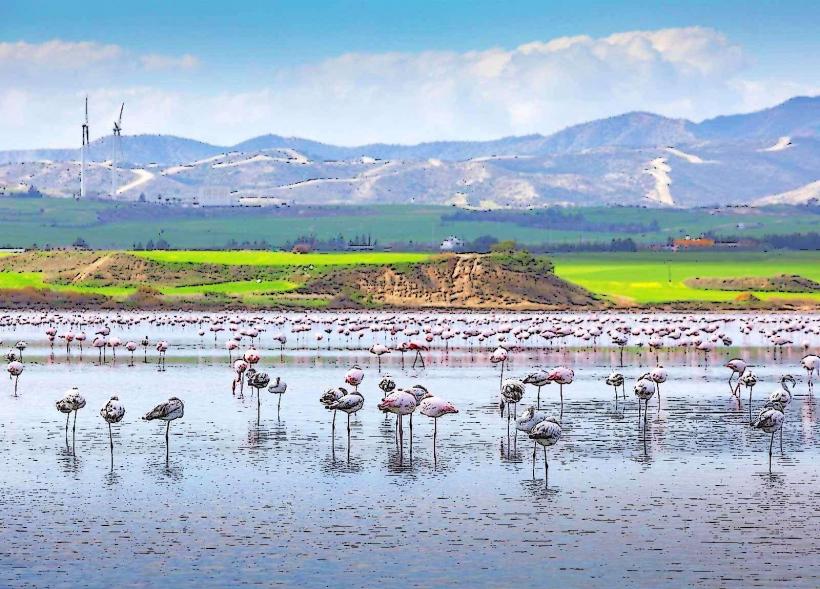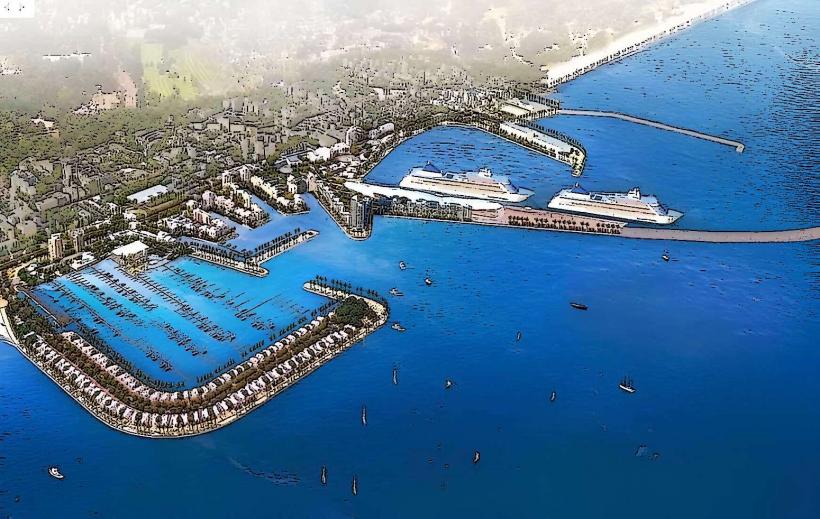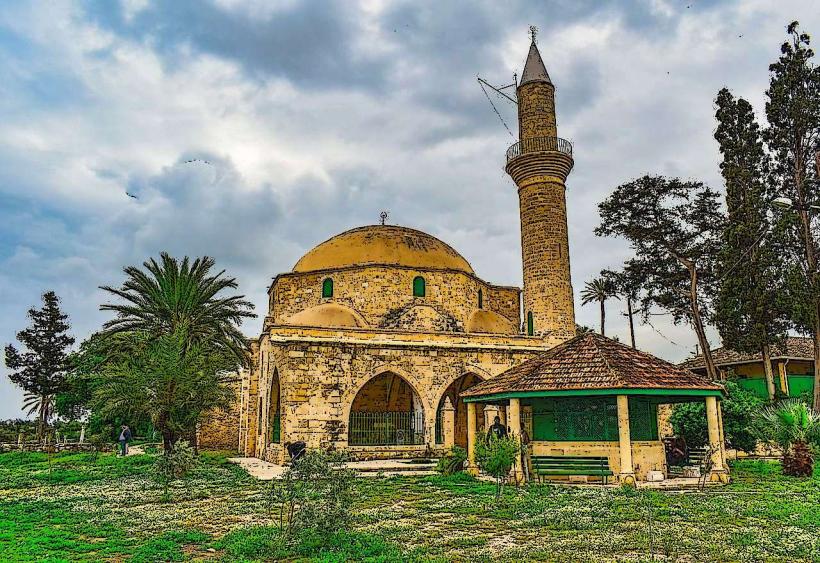Information
City: LarnacaCountry: Cyprus
Continent: Europe
Larnaca, Cyprus, Europe
Larnaca (Larnaka) serves as the primary aviation and logistics gateway of Cyprus. It functions as the island's second-largest port and its oldest continuously inhabited city, characterized by its palm-lined promenade, the presence of a massive salt lake, and a balance between its historical "Skala" quarter and modern commercial development.
Historical Timeline
Inhabited for over 4,000 years, the city was founded by the Mycenaeans as Kition in the 13th century BCE and later became a major Phoenician colony. The primary event shaping its current urban form was the 1974 Turkish invasion, which led to the closure of Nicosia International Airport and the port of Famagusta; Larnaca's airfield and harbor were rapidly expanded to compensate, transforming the town from a quiet seaside settlement into the republic’s vital link to the world.
Demographics & Population
The metropolitan population is approximately 165,500 (2026 estimate), with the urban core housing roughly 52,000 residents. The demographic is predominantly Greek Cypriot, though its status as a transport hub has fostered a diverse expatriate community, particularly from the Middle East and the UK. The median age is approximately 38 years.
Urban Layout & Key Districts
The city is organized along a sprawling coastline. Key districts include Finikoudes, the iconic palm-fringed waterfront and tourism core; Skala, the historic Turkish-Cypriot quarter now serving as a bohemian hub for artisans; Mackenzie, the nightlife and beach club district near the airport; and Kamares, the residential area surrounding the historic aqueduct.
Top City Landmarks
Church of Saint Lazarus (9th-century Byzantine masterpiece)
Hala Sultan Tekke Mosque (Critical Islamic pilgrimage site)
Larnaca Salt Lake (Winter home to thousands of flamingos)
Larnaca Medieval Fort
Kamares Aqueduct (18th-century Ottoman engineering)
Transportation Network
Movement is facilitated by the Cyprus Public Transport bus network. There is no rail transit. Air travel is serviced by Larnaca International Airport (LCA), the island’s largest, located 4 km south. The city serves as the central node for the Intercity Bus network, offering the most frequent connections to Nicosia, Limassol, and Ayia Napa. Traffic density is moderate compared to Limassol but peaks near the port and the "K Cineplex" roundabout.
Safety & "Red Zones"
The safety level is high. There are no "red zones." Larnaca is known for being safer and more laid-back than the larger Cypriot cities. The primary risks are seasonal: extreme heat in summer and potential riptides at non-lifeguarded sections of Mackenzie Beach. Standard precautions against petty theft apply in crowded areas of Finikoudes.
Digital & Financial Infrastructure
Average internet speed is 100–300 Mbps; the city is part of the national fiber-optic rollout. Main carriers are Cyta, Epic, and PrimeTel. Card acceptance is universal; instant-payment rails (launched 2025) have made digital transactions seamless across all retail. ATMs are abundant along the promenade and Zinonos Kitieos Street.
Climate & Air Quality
Temperatures range from 7°C in winter to 35°C in summer. Humidity is high due to the coastal salt flats. Air quality is generally Good to Moderate (AQI 20–60), though seasonal Saharan dust storms can temporarily spike particulate levels. The Salt Lake dries up completely in summer, revealing a crust of salt that can reflect heat intensely.
Culture & Social Norms
Tipping of 5–10% is standard. The culture is defined by "Siga-Siga" (slowly-slowly) living. Larnaca hosts the Kataklysmos (Flood Festival) in June, the largest celebration of its kind in Cyprus. Dress code is casual; however, modest attire is strictly required for Saint Lazarus Church and the Hala Sultan Tekke.
Accommodation Zones
Stay in the City Center (Finikoudes) for walking access to museums, the beach, and the main bus hub.
Stay in Mackenzie for beach-front access, airport proximity, and nightlife.
Local Cost Index
1 Espresso/Freddo Espresso: €2.50 – €4.00
1 Standard Lunch (Meze/Fish): €18.00 – €30.00
1 Urban Bus Fare: €2.00 – €2.50
Nearby Day Trips
Lefkara Village (Famous for lace and silver): 40 km (35 minutes)
Ayia Napa / Cape Greco: 45 km (40 minutes)
Choirokoitia (Neolithic settlement): 30 km (25 minutes)
Camel Park (Mazotos): 20 km (20 minutes)
Facts & Legends
Larnaca is the birthplace of Zeno, the founder of the Stoic school of philosophy. Local legend claims that Saint Lazarus lived in the city for 30 years after being raised from the dead by Jesus, serving as its first Bishop, while a verified historical fact is that the city’s name is derived from the Greek word larnax, meaning "sarcophagus," due to the vast number of ancient tombs found beneath its streets.

